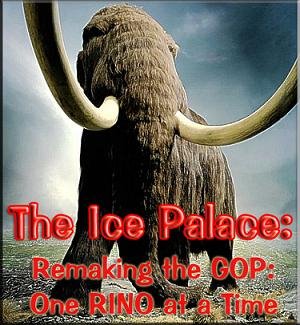Iraq v. Viet Nam?
Iraq is not Vietnam, and the war on terrorism is not the Cold War.That's all you've been saying all along, Jean Francios!
On the other hand, contrast Jean Francios' comparison of Iraq to Vietnam with Ollie North's:
Having spent a good bit of time in both wars, it's my observation that there are few, if any, parallels between Vietnam and Iraq. Aside from the reality that bombs and bullets still kill and maim, and the blood of courageous American soldiers, sailors, airmen, Guardsmen and Marines is still red, Baghdad isn't Saigon, Fallujah isn't Hue City, and battling terrorists in Al Anbar Province is totally unlike fighting the North Vietnamese Army in the A Shau Valley. Those who think otherwise should watch this week's episode of "War Stories," about the sanguinary, 10-day fight to take Hamburger Hill.Exactly, Colonel North. And Jean Francios Kerry, Murtha, Pelosi, and their willing MSM allies are all too willing to accomodate that outcome.
By May of 1969, when the famed 101st Airborne Division slogged to the top of Dong Ap Bia — the cloud-shrouded mountain's real name — there were more than 400,000 U.S. troops in Vietnam and over 48,000 had been lost to enemy combat. Today, after three years of war in Iraq, there are fewer than 135,000 U.S. troops on the ground and as of today, there are 2,500 that have been killed in action or died of wounds.
Critics of how President Bush has handled the war in Mesopotamia cynically point to mounting casualties as a way of linking combat in Iraq with what took place nearly four decades ago in Vietnam. There is no doubt that every casualty is a tragedy. Yet, the difference in combat losses between the two wars is staggering. At the peak of the war in Vietnam (1968-1969), we were losing more than 35 men in action daily. In Iraq, the "morbidity rate" is fewer than 2.5 men per day.
Then there is the difference in enemies. Our opponents in Vietnam, though certainly capable of extraordinary cruelty, never made videos of their captives being beheaded. Unlike homicidal suicide-terrorists I have seen in Iraq, the NVA soldiers I confronted then, and those I interviewed in Vietnam just a few weeks ago in the shadow of Hamburger Hill, all wanted to survive the experience.
Finally, there is the issue of outcome. We lost the war in Vietnam — not on the battlefield — but in the corridors of power in our nation's capital. We pulled out and abandoned our South Vietnamese allies, and two years later they were overwhelmed. We can still lose this war the same way.
(Filed under the fifth column)















|